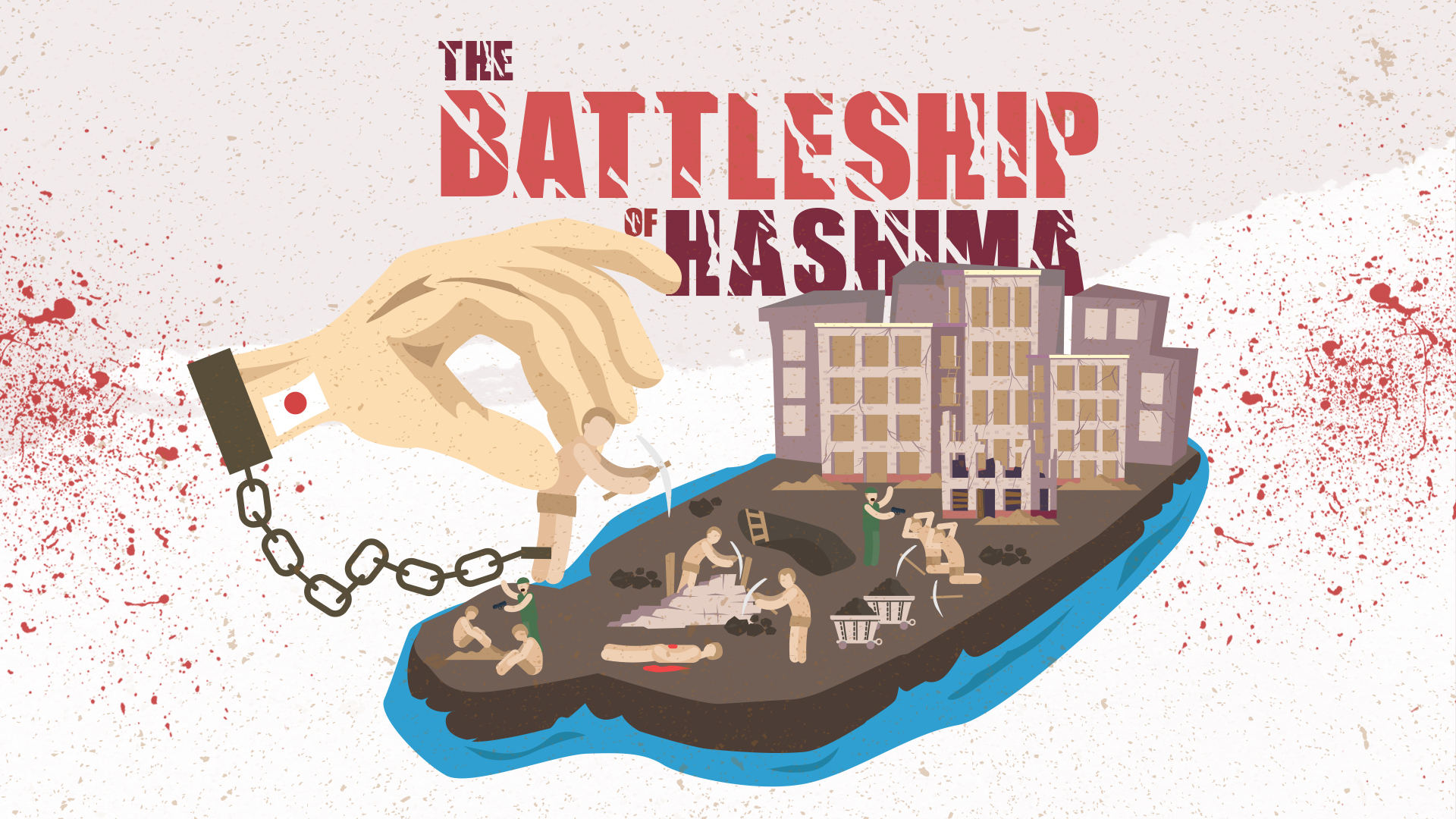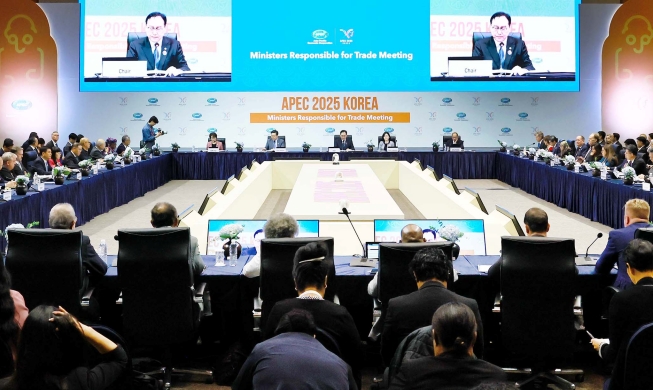- 한국어
- English
- 日本語
- 中文
- العربية
- Español
- Français
- Deutsch
- Pусский
- Tiếng Việt
- Indonesian
By Honorary Reporters Jean Singian and Nikhita Villacorta from Philippines
Illustration = Nikhita Villacorta

Hashima (Battleship) Island, located off the coast of Japan's Nagasaki Prefecture, is a UNESCO World Heritage Site. The island used to host mining operations and has remained controversial because of the use of forced laborers and comfort women there during World War II to advance Japan's industrialization. In the past, Koreans and Chinese were forced to work at coal mines there under inhumane conditions.
Those forced to work on the island from 1939-45 likened the island to prison or hell. Many tried to escape but most of them died due to harsh conditions such as huge waves and being beaten if caught. One source said nine Korean miners were put inside a room so small that they barely had enough space for each person. Each worker also received just one pair of underwear.
During that time, laborers also lacked equipment to dig 1,000 m below sea level, and had to manually mine around 900 meters below sea level. They were forced to work in a steep coal mine with a temperature of 45 degrees Celsius 12-16 hours a day. Rice balls and leftover soybean soil were given as meals. Not only were they subject to longer working hours and inadequate pay, they also failed to receive proper nutrition and were pushed to the brink of death.
Remembering history plays an important role in maintaining peace and spurring progress in countries. History is not only meant to be used as a tool to remember dates, events and other milestones; understanding how and why things happened is also key. Moreover, remembering history can also prevent chaotic events from recurring.
Acknowledging the experience of forced workers on Hashima is a must given those who experienced unimaginable pain during that time. The trauma it caused and the lives lost are never justifiable, and distorting history only leads to prolonged injustice felt by the victims. Korea is right to demand that Japan accurately represent the facts and not ignore the efforts of the affected nations and their people, who have long fought for the justice they deserve.
The Philippines had a similar experience during World War II. Many Filipinos also worked at coal mines in their homeland and Filipinas were also forced to provide sex to Japanese soldiers. The resulting struggle, destruction and sorrow must never be forgotten and should serve as reminders that nation building is no excuse for trampling on the rights of other people. Japan can try to put a positive spin on Hashima, but will never erase the burning memories of what happened there. It must heed the saying "Unless we learn our lessons from the past, history will repeat itself."
chaey0726@korea.kr
*This article is written by a Korea.net Honorary Reporter. Our group of Honorary Reporters are from all around the world, and they share with Korea.net their love and passion for all things Korean.
